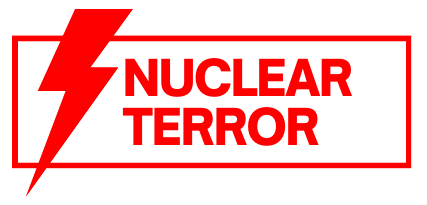Are you ready to uncover the identity of the country that made a jaw-dropping decision to withdraw from the NPT? Brace yourself as we delve into the intriguing realm of international diplomacy and nuclear disarmament. In a world where the majority of nations have committed to the Nuclear Non-Proliferation Treaty, there exists one country that defied expectations – an unprecedented move that sent shockwaves through the international community. Stay tuned as we unravel the mystery and uncover the circumstances surrounding the withdrawal, shedding light on the implications it has had on global security.
NPT Withdrawal Process
The NPT withdrawal process is an important procedure outlined in Article X of the treaty, allowing parties to withdraw under specific conditions and with proper notice to the United Nations Security Council and other parties involved. The implications of withdrawal are significant, as it can have far-reaching consequences for international non-proliferation efforts. The international response to a withdrawal can vary, with some countries expressing concern and condemnation, while others may view it as a legitimate exercise of a nation’s sovereign rights. Safeguards and verification play a crucial role in the withdrawal process, ensuring that the withdrawing party fulfills its obligations and does not misuse the acquired nuclear capabilities. Lessons from North Korea’s withdrawal in 2003 highlight the need for stricter compliance measures and the importance of addressing the potential impact on regional and global security. The overall impact on non-proliferation efforts can be detrimental, as withdrawal may undermine the collective efforts to prevent the spread of nuclear weapons and destabilize the global security architecture. Therefore, careful consideration and cooperation among all parties are imperative to mitigate the risks associated with NPT withdrawal and maintain the integrity of the treaty.
Conditions for NPT Withdrawal
North Korea’s withdrawal from the NPT in 2003 has brought attention to the conditions that govern the process of NPT withdrawal. The regulation proposals surrounding withdrawal aim to address concerns regarding national security, the verification process, and the impact of withdrawal. One proposal suggests regulating the implementation of Article X by requiring the withdrawing party to demonstrate good compliance and return any technologies acquired while in the NPT. These proposals aim to prevent countries from using withdrawal as a means to acquire nuclear capabilities without facing consequences. However, the subjective nature of assessing events that compromise a nation’s security is seen as a weakness of the regime. The impact of withdrawal on national security is a major consideration, as it can strain diplomatic relations and potentially lead to the possession of nuclear capabilities acquired while in the NPT being deemed illegal. Criticism and condemnation often follow NPT withdrawal, as it is viewed as a violation of international norms and a threat to global non-proliferation efforts. The role of the United Nations Security Council in assessing the legitimacy of withdrawal is crucial, but the sensitive nature of these issues can make it difficult to reach a unanimous decision. Overall, the conditions for NPT withdrawal are a topic of ongoing debate and require careful consideration to maintain the integrity of the treaty and global security.
| Regulation Proposals | Verification Process | Reasons for Withdrawal |
|---|---|---|
| – Demonstrate good compliance | – Immediate verification of compliance | – Compromised national security |
| – Return acquired technologies | – Effective inspections of nuclear activities | – Changes in external power balance |
| – Incorporate dismantling or return clauses | – Permit international inspection | – Domestic political incentives |
| – Prevent future threats to international peace | – Command inspections of enrichment/reprocessing facilities | – Changes in American military presence |
| – Restrict use of acquired fissile materials | – Examine if withdrawal poses future threat | – Lack of diplomatic breakthroughs |
Legal and Strategic Considerations
Considering the legal and strategic implications, withdrawing from the NPT requires careful evaluation of potential consequences and impact on national security. From a legal perspective, there are several implications to consider. Withdrawal from the NPT may lead to criticism and condemnation from the international community, as it is seen as a violation of commitments made under the treaty. Additionally, possessing nuclear capabilities acquired while in the NPT may be considered illegal, further complicating the situation.
Strategically, the decision to withdraw can have significant consequences for national security. It may strain diplomatic relations with other countries, particularly those that view nuclear proliferation as a threat. The potential impact on diplomatic relations should be carefully weighed, as it could have long-lasting effects on a country’s standing in the international community.
The role of the Security Council in the withdrawal process is crucial. The Security Council assesses the legitimacy of withdrawal and has the power to take appropriate action under Chapter VII of the UN Charter in response to withdrawal. However, reaching a unanimous decision within the Council can be challenging due to the sensitive nature of withdrawal issues and differing perspectives on nuclear proliferation.
Role of the United Nations Security Council
With the legal and strategic considerations in mind, it is essential to understand the crucial role that the United Nations Security Council plays in the process of NPT withdrawal. The Security Council’s effectiveness in maintaining international peace and security is of utmost importance when it comes to addressing the issue of withdrawal. Here are three key aspects of the Security Council’s role in this process:
- Decision-making process: The Security Council is responsible for assessing the legitimacy of a country’s withdrawal from the NPT. It plays a vital role in determining whether the withdrawal poses a threat to international peace and security. The Council’s decision-making process involves careful deliberation and consideration of all relevant factors.
- Response to withdrawal: The Security Council can take appropriate action under Chapter VII of the UN Charter in response to a country’s withdrawal from the NPT. This may include imposing sanctions or other measures to address the threat posed by the withdrawal and ensure that international peace and security are not compromised.
- Signaling to other states: The Security Council’s actions or lack thereof in response to a country’s withdrawal from the NPT send a powerful message to other states considering similar actions. It is crucial for the Council to demonstrate its commitment to upholding the non-proliferation regime and deterring potential withdrawals that could undermine international peace and security.
The role of the United Nations Security Council in the process of NPT withdrawal is vital for maintaining international peace and security. Its decision-making process, response to withdrawal, and signaling to other states all contribute to the effectiveness of the non-proliferation regime and the prevention of nuclear weapons proliferation.
Stalemate and Proposals for Addressing Withdrawal
The stalemate surrounding the issue of withdrawal from the NPT has prompted various proposals for addressing this contentious issue. One approach is to focus on preventing withdrawal by strengthening compliance with the NPT. This could involve stricter monitoring and verification mechanisms to ensure that parties are upholding their commitments. By doing so, it would increase accountability and discourage countries from considering withdrawal.
Another proposal is to address national security concerns that may lead to withdrawal. This could involve evaluating the consequences of withdrawal and exploring alternative security arrangements that could alleviate those concerns, such as regional security agreements or diplomatic negotiations. By addressing these underlying security issues, it may reduce the incentive for countries to withdraw from the NPT.
Additionally, there have been suggestions for ensuring accountability for violations committed while being a party to the NPT. This could involve holding withdrawing states responsible for any violations and imposing penalties or restrictions on their nuclear capabilities. By doing so, it would send a strong message that withdrawal does not absolve parties of their obligations.
North Korea’s Withdrawal and Past Negotiations
To understand the context of North Korea’s withdrawal from the NPT and the subsequent negotiations, it is important to examine the historical background and the factors that prompted this decision.
- Reasons for withdrawal: North Korea’s withdrawal from the NPT can be attributed to both neorealism and selectorate theory. Neorealism suggests that changes in the external power balance led North Korea to seek nuclear weapons for security. On the other hand, the selectorate theory suggests that changes in domestic politics incentivized the regime leader to pursue nuclear programs.
- North Korea’s nuclear program: North Korea felt the need to develop its own nuclear weapons for self-defense, particularly due to the presence of American nuclear arsenals and troops in South Korea and Japan. The regime believed that having nuclear capabilities would deter security threats and maintain a balance of power.
- International response and impact on regional security: North Korea’s withdrawal from the NPT sparked significant international concern and condemnation. The international community viewed it as a violation of non-proliferation norms and a threat to regional security. The United States, South Korea, and Japan became particularly alarmed, leading to heightened tensions in the region.
- Lessons learned from past negotiations: Past negotiations, such as the 1994 Agreed Framework, taught the international community that North Korea cannot be trusted to uphold its commitments. Despite promises to freeze its nuclear program, North Korea continued its uranium-enrichment efforts. This highlights the importance of verification mechanisms and the need for stricter enforcement of agreements in future negotiations.
Security Council’s Powers and Actions
The Security Council exercises crucial authority when considering the powers and actions associated with NPT withdrawal cases, particularly in assessing the legitimacy of withdrawal and its potential impact on international peace and security. The Security Council’s response to NPT violations is essential in upholding the non-proliferation regime and deterring future threats. In the case of North Korea’s withdrawal in 2003, the Security Council has not reached a unanimous decision regarding the legitimacy of the withdrawal and the use of nuclear facilities. China, a permanent member of the Security Council, has twice blocked action or debate on North Korea’s case, reflecting tension and differing perspectives on proliferation issues.
To address NPT violations and ensure verification of compliance, the Security Council has the power to take action under Chapter VII of the UN Charter. The IAEA has reported North Korea’s noncompliance to the Security Council, highlighting the need for the Council to address such violations. It is crucial for the Security Council to promptly respond to NPT withdrawals and demand effective inspections of nuclear activities to maintain the integrity of the non-proliferation regime.
In order to prevent future threats to international peace, proposals have been made to condition NPT withdrawal and verification. France proposes that withdrawing states remain responsible for violations committed while they were NPT members. Germany suggests that all nuclear equipment and technology obtained during NPT membership should be restricted to peaceful uses under IAEA safeguards. The Carnegie Endowment recommends that a withdrawing party remains responsible for violations and that all nuclear materials and facilities remain under IAEA safeguards.
The Security Council’s role in addressing NPT withdrawals is crucial for maintaining the credibility and effectiveness of the non-proliferation regime. The Council’s response, particularly in cases like North Korea’s, sets a precedent for future withdrawals and sends a message to other states considering similar actions. It is imperative for the Security Council to carefully assess the legitimacy of NPT withdrawals and take appropriate action to prevent threats to international peace and security.
| Security Council’s Response | North Korea’s Case | NPT Violations |
|---|---|---|
| Lack of unanimous decision reflects tension over proliferation issues | China blocked Security Council action or debate on North Korea’s case | IAEA reported North Korea’s noncompliance to the Security Council |
| Verification of Compliance | Future Threats |
|---|---|
| Prompt inspection of nuclear activities | Proposals for conditioning withdrawal and verification |
Proposals for Addressing NPT Withdrawals
When considering proposals for addressing NPT withdrawals, it is important to carefully analyze the potential consequences and impact on national security. Several proposals have been put forward to address this issue:
- France’s proposal suggests that withdrawing NPT states-parties should remain responsible for violations committed while they were members. This would ensure accountability for any irresponsible actions taken during their membership.
- Germany’s proposal emphasizes that all nuclear equipment, technology, and know-how obtained as a result of NPT membership should remain restricted to peaceful uses under IAEA safeguards. This would prevent the misuse of acquired resources for future threats.
- The Carnegie Endowment recommends that a withdrawing NPT party should remain responsible for any violations committed while being a party, and that all nuclear materials, facilities, and related equipment must remain under IAEA safeguards. This proposal strengthens the verification process and ensures responsible behavior.
These proposals aim to address future implications of NPT withdrawals by enforcing responsible violations, strengthening the verification process through IAEA safeguards, and mitigating potential future threats. By implementing these measures, the international community can discourage irresponsible actions and maintain the integrity and effectiveness of the NPT regime.


